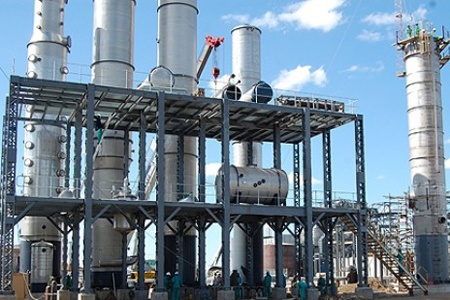
A recent conference in Switzerland has recommended the full functionality of a Cabinet-appointed committee tasked with ensuring communication between the local community and the developers of the ethanol plant in Chisumbanje.
BY OUR STAFF
Conflict is simmering as there are plans to weaken the District Ethanol Project Implementation Committee (Depic) — which is an all stakeholders committee formed last year to resolve the crisis at the ethanol plant that had stopped production in 2011 after reaching its holding capacity amid a slow uptake of the ethanol.
At a two-day conference on Land Conflicts in Southern Africa: Recent Developments in Zimbabwe and South Africa held in Basel, Switzerland on November 15, participants urged government “to respect the rights of the communities and to ensure that Depic installed by cabinet in September 2012 is fully functional”.
The conference resolved that government has to ensure villagers of Chisumbanje and Chinyamukwakwa who lost land, crops and livestock were compensated by the investor.
“This is to be done through allocation of land for food production and also for outgrower purposes. We support the villagers’ demands for two hectares of irrigatable land in addition to land allocated to outgrowers,” they said.
The participants also resolved that government should ensure that the 116 contracted settler farmers were compensated for their land user rights. The farmers had title deeds under the Agricultural Rural Development Authority.
“The government of Zimbabwe should monitor and protect the land tenure system by respecting the villagers’ rights to land, food, health, water and freedom of association and speech,” they said.
- Chamisa under fire over US$120K donation
- Mavhunga puts DeMbare into Chibuku quarterfinals
- Pension funds bet on Cabora Bassa oilfields
- Councils defy govt fire tender directive
Keep Reading
They also urged government to safeguard the community from exploitation and abuse by the investors’ pursuit of profit.
The resolutions were made after presentations by Zimbabwe Platform for Youth Development Trust director Claris Madhuku and Wedzerai Gwenzi, an activist in Chisumbanje on community resistance against the investor of the ethanol project.
Madhuku told The Standard last week that the discussion in Switzerland of the plight of villagers in Chisumbanje showed that the international glare was on Zimbabwe and the country has to ensure the protection of the rights of the communities.
“We will go any level higher to ensure that government respects our rights as a community,” Madhuku said.
The conference was organised by the Afrika-Komitee, Centre for African Studies, Fepa, Keesa and Solifonds. It sought to provide a platform to communities directly involved in land conflicts.










